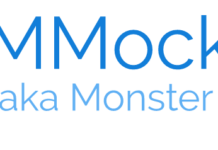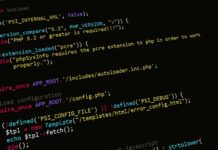I have the following scenario:
I’m using Unity dependency injection container and interception techniques to log some WCF operation calls. I need to log the input parameters and also the result of these operations so I’ve implemented a CallHandler that I can apply to whatever methods that I need to intercept.
In this CallHandler I’ve defined a class called LogEntry and I’m logging with log4net. Something like this:
LogEntry logEntry = new LogEntry(); .... // set some base properties logEntry.MethodName = input.MethodBase.Name; logEntry.TypeName = input.Target.GetType().FullName; ... // set input parameters logEntry.Input = ....; ... // set return value logEntry.ReturnValue = result.ReturnValue; ..... // set total method duration logEntry.CallTime = stopwatch.Elapsed.TotalMilliseconds; ..... // use log4net logger to log this information logger.Debug(logEntry);
So this LogEntry class has some properties that will hold the information that I want to log. Now I need to capture these properties and configure the log4net appenders properly.
I’m using log4net PatternLayout and PatternConverter features. Let’s start with PatternLayout
///<summary>
/// Extended version of <see cref="PatternLayout"/>
/// </summary>
public class ExtendedPatternLayout : PatternLayout
{
///<summary>
/// Initializes a new instance of the <see cref="ExtendedPatternLayout"/> class.
/// </summary>;
public ExtendedPatternLayout()
{
this.AddConverter(new ConverterInfo()
{
Name = "logEntry",
Type = typeof(LogEntryConverter),
});
}
}
This layout just adds a new Converter named “logEntry” implemented by the class LogEntryConverter. There is no reference to LogEntry class here. And the LogEntryConverter class is here:
/// <summary>
/// Custom <see cref="PatternConverter"/> to handle <see cref="LogEntry"/>
/// </summary>
public class LogEntryConverter : PatternConverter
{
/// <summary>
/// Converts the specified writer.
/// </summary>
/// <param name="writer">The writer.</param>
/// <param name="state">The state.</param>
protected override void Convert(System.IO.TextWriter writer, object state)
{
var loggingEvent = state as LoggingEvent;
var logEntry = loggingEvent.MessageObject as LogEntry;
if (logEntry != null)
{
switch (this.Option.ToLower())
{
case "calltime":
writer.Write(logEntry.CallTime.HasValue ? logEntry.CallTime.Value : 0);
break;
case "methodname":
writer.Write(logEntry.MethodName);
break;
case "returnvalue":
writer.Write(SerializationService.SerializeToJSON(logEntry.ReturnValue));
break;
..........
..........
default:
writer.Write(string.Empty);
break;
}
}
}
}
I’ve made the code smaller but you need to check for null references!
I’m using a JSON serialization technique to grab the representation of the method’s return value.
I need to override the Convert method and access state object that is a log4net LoggingEvent object. This object has my logged object from the CallHandler which is a LogEntry object. Based on the Option property of the converter I can choose which property to write.
And finally I can configure my log4net like this
<layout type="ExtendedPatternLayout">
<conversionPattern value="%logEntry{CallTime}" />
</layout>
You can see the conversionPattern follows this syntax: %convertername{option}


![[FIX] BizTalk Server 2010, 2013, 2013 R2 & 2016 errors “Class not registered (WinMgmt)” or “Access denied”](https://blogit.create.pt/wp-content/uploads/2018/07/access-black-and-white-blur-270514-218x150.jpg)



















